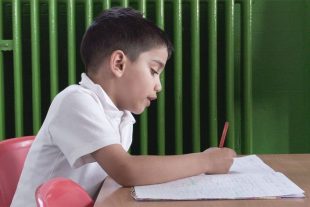
The way in which phonics is taught in schools has evolved significantly in the last 10 years.
A key upcoming change in recognition of that evolution is the removal of the widely used 2007 Letters and Sounds handbook from gov.uk and from the Department’s list of validated phonics programmes.
Here we answer teachers’ key questions on the change:
So, what’s changed – is there something wrong with Letters and Sounds 2007?
The 2007 Letters and Sounds handbook isn’t a full Systematic Synthetic Phonics (SSP) programme because it doesn’t provide the support, guidance, resources or training needed. It relies on schools building a programme of resources around the handbook and in many cases updating the progression to bring it in line with current best practice. Some schools have done this very successfully and it was for this reason that schools achieving strong results using 2007 Letters and Sounds were included in the English Hubs programme in 2018.
Does this mean we have to stop using Letters and Sounds 2007?
No. You don’t have to stop using Letters and Sounds 2007 now, or at all. Ofsted do not have a preferred programme or approach. What’s important is that schools take an approach that is rigorous, systematic, used with fidelity (any resources used should exactly match the Grapheme Phoneme Correspondence (GPC) progression of their chosen SSP approach), and achieves strong results for all pupils, including the most disadvantaged. We believe the easiest way to achieve this is to use a full SSP programme from the validated list, but this is not mandatory.
The only exception to this is if you’re receiving support from an English Hub. Schools receiving support through the English Hubs programme must follow a programme from the validated list. Letters and Sounds 2007 will remain on the validated list until 2022 to allow schools using it the time to transition. These schools are advised to contact their local English Hub for more information.
What do we need to do if we’re still using Letters and Sounds 2007?
Letters and Sounds 2007 will remain on the Department’s validated list until Spring 2022. This gives schools using it time to consider their approach and to consider any new SSP programmes on the Department’s validated list. After Spring 2022, schools wanting or needing to improve their practice will be strongly encouraged to use an SSP programme from the validated list, although this will not be mandatory. More information on the validation process can be found here.
Can schools continue to use their own programme without having to get it validated?
If your school uses its own approach based around Letters and Sounds 2007 which includes appropriate resources, has decodable books matched to pupils’ phonic knowledge, high-quality staff training and achieves strong results, there is no need to change approach. Schools should check that the approach taken is sustainable and works for all children, including the most disadvantaged.
There is no obligation to bring a programme for validation. Applications from schools wishing to share their good practice more widely, and who have the capacity to do so, are encouraged however. Schools can continue with their approach even if it is not validated.
It is for individual schools to decide which approach to phonics teaching they use, although the Department recommends schools consider an SSP programme from the validated list, as these programmes will have met robust criteria and will have been tested and assessed to be of high-quality.
Will my school need to buy new sets of decodable books?
We highly recommend that schools use a full SSP programme with decodable texts matching pupils’ phonic knowledge. The Ofsted inspection handbook states that the sequence of reading books should show a cumulative progression in phonics knowledge that is matched closely to the school’s phonics programme and that children should read and re-read books that match the grapheme-phoneme correspondences they know.
This expectation is consistent with the English programmes of study: key stages 1 and 2 National curriculum in England which states that pupils should read aloud accurately books that are consistent with their developing phonic knowledge and that do not require them to use other strategies to work out words. Validated SSP programmes will either have produced their own matching fully decodable books/texts or will be able to recommend a scheme of books/texts that matches the progression of GPCs in their programme exactly. Schools choosing decodable reading material for pupils that is not included within or recommended by the SSP programme they are using should ensure it is fully decodable and only includes sounds pupils have already learnt and with which they are fully secure. Schools can also seek support and advice from their nearest English Hub when choosing decodable texts to match a programme.
If a school chooses to move to a validated SSP based on L&S we anticipate that many of their existing books will continue to match the programme. We would expect validated L&S programmes to provide details about decodable books to support schools to understand any potential changes.
Teachers and parents should continue to maximise opportunities for pupils to hear and talk about a rich and diverse range of stories and songs that are not yet decodable by the pupils themselves.